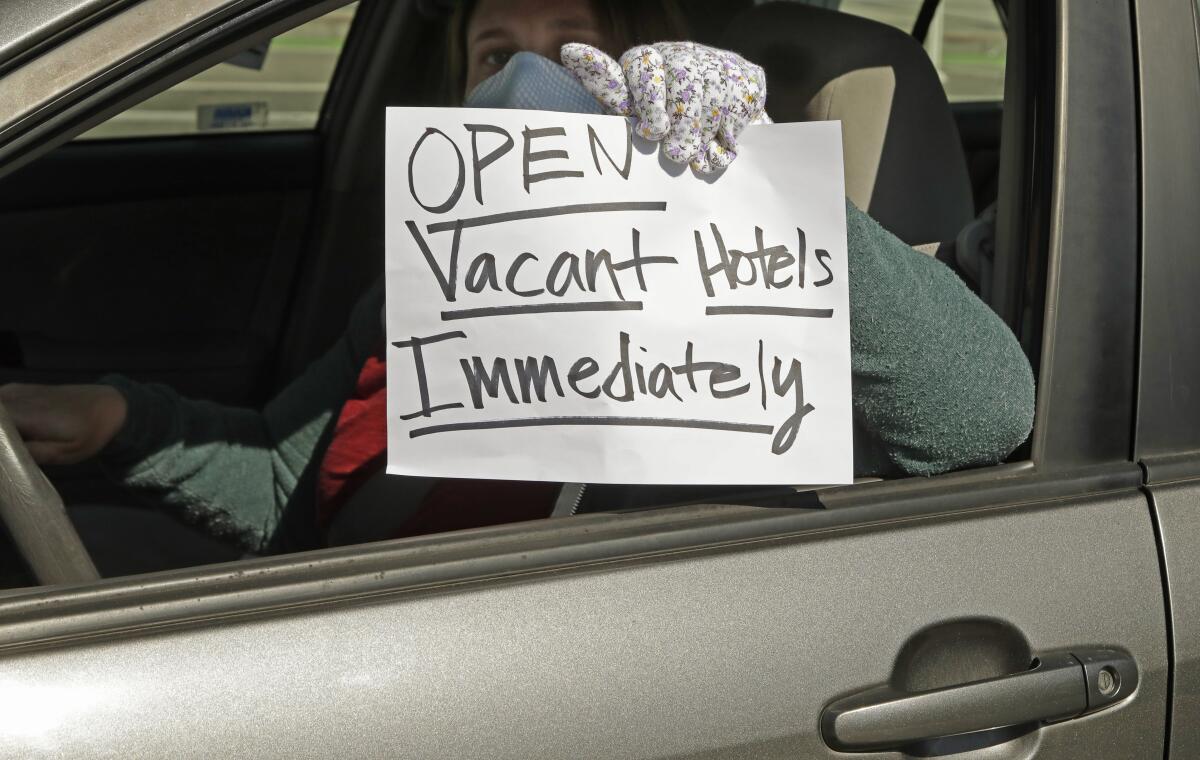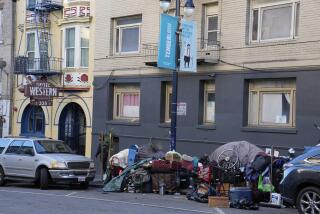Homeless people from other cities moving to San Francisco for hotel rooms, mayor says

- Share via
SAN FRANCISCO — San Francisco Mayor London Breed said Wednesday that homeless people from other counties have moved to San Francisco to ask to be placed in city-leased hotels during the coronavirus crisis.
She stressed that the hotel rooms were for homeless individuals who lived in the city before the health crisis.
“Only people who are currently in our homeless system of care may qualify” for hotel room and other accommodations, she said.
She also said 120 RVs and trailers have been placed at Pier 94 for homeless residents of the Bayview-Hunters Point community.
Priority will be given to homeless people 60 or older and to those with underlying health conditions. The trailers and RVs will open for what city officials call “guests” next week, and support staff and meals will be provided, city officials said.
Abigail Stewart-Kahn, director of San Francisco’s homeless services, asked homeless residents from other counties to return to there.
“We need you to return to your home communities and get the resources there,” she said.
Dr. Susan Philip, San Francisco’s deputy health officer, said 1,490 San Franciscans have tested positive for COVID-19, and 23 have died.
The virus “can spread as easily as it did a month ago,” she warned, “and it will thrive if we allow it.”
Officials also discussed modest easing of some stay-at-home rules, allowing certain outdoor businesses and recreational facilities to open Monday.
Philip said tennis courts and basketball courts will not be reopening because players share balls. “We still can’t share equipment,” she said.
Restaurants with outdoor spaces also will remain closed because diners have to remove their masks to eat and waitstaff might find it impossible to maintain a six-foot distance from customers. Child care and summer camps for children of essential workers will remain open, Philip said.
More to Read
Sign up for Essential California
The most important California stories and recommendations in your inbox every morning.
You may occasionally receive promotional content from the Los Angeles Times.







